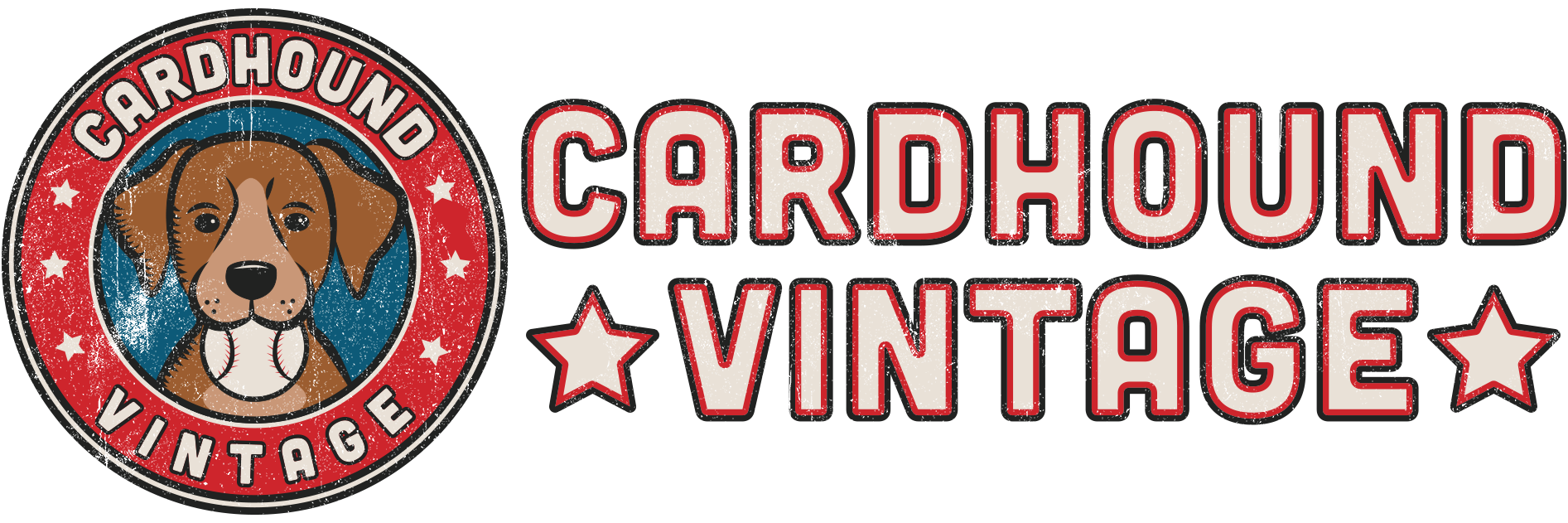Safety is perhaps the most important aspect of buying or trading cards online. After all, you don’t want to lose your cards, or your money. The safest transactions are of course in person. But there is no denying the ease, convenience, and breadth of inventory that can be located online.
With the rise of online marketplaces, buying and selling vintage sports cards has become more accessible than ever. However, along with this convenience comes the risk of scams, counterfeits, and other pitfalls.
While Cardhound addresses topics such as scams and counterfeits, this piece is about online safety more broadly. Consider this article a checklist of tips for safe transactions–especially when buying or selling in informal groups on social media.
Research, Research, Research

A Counterfeit Babe
Knowledge is power. Before making any purchase, take the time to research the specific card or cards you’re interested in. Familiarize yourself with common counterfeit signs. Utilize reputable resources such as collector forums like ours to educate yourself on the market. Perhaps the biggest aspect of online safety is being informed.
Choose Reputable Platforms
When buying or selling vintage sports cards online, opt for well-established platforms with robust security measures and a track record of reliability. Platforms like eBay, COMC (Check Out My Cards), and specialized trading forums sometimes offer buyer and seller protection policies, member vetting, or user reviews that can help safeguard your transactions.
If you are doing direct deals in a Forum or Facebook group (here’s a link to the large vintage group I help administer), it is important to use secure payment methods outlined below.
Verify Sellers and Buyers
Before entering into a transaction, verify the credibility of the seller or buyer. If possible, check their feedback, ratings, and transaction history on the platform. Avoid brand new members, profiles with no history in a group, few friends, lack of a profile picture, etc. Scam or unreliable sellers almost always have warning signs that are easy to detect..
Look for sellers with a proven track record of successful sales and positive reviews from other collectors. Similarly, if you’re selling cards, ensure that potential buyers have a reliable history of transactions and positive feedback. Don’t be afraid to request vouches or references before bidding, buying, or shipping.
Request Additional Information and Photos

Good front and back pics in good light are essential
Not every bad deal is a “scam.” Many sellers simple don’t provide good photos–and too many buyers don’t ask for better pictures. I can’t believe how many bids are placed on listings that don’t even include pictures of the card backs! That’s 50% of the card.
Don’t hesitate to ask sellers for additional information or detailed photos of the cards you’re interested in. Inspect the images closely for any signs of wear, damage, or inconsistencies that could indicate a counterfeit or altered card. Legitimate sellers will typically be more than happy to provide any necessary information to verify the condition and authenticity of their cards.
Utilize Secure Payment Methods
When completing transactions, opt for secure payment methods that offer buyer and seller protection, such as PayPal goods and services, preferably backed by your credit card.
Avoid using cash, money orders, friends and family payments, Cashapp or Zelle, or wire transfers for online transactions. They offer little recourse in case of fraud or disputes.
Be cautious of sellers who insist on unconventional payment methods or request payment outside of a platform’s recommended payment system. Almost always, this is a scam. And even with Paypal goods and services, make sure the email contact matches the name of the person you’re transacting with.
Seek Professional Authentication

Often, I see would-be buyers posting pics of monster raw cards, asking for opinions of authenticity before buying. And much of the time, the cards in question are not just fakes–they are bad fakes. For high-value vintage sports cards or if you have any doubts about the authenticity of a card, consider investing in professionally graded cards.
Companies like PSA and SGC offer expert authentication and evaluation, providing peace of mind for both buyers and sellers. Check the grader’s certification verification and make sure the number matches the card and that the plastic case (slab) shows no signs of tampering. Avoid no-name grading companies that might give only the appearance of legitimacy.
Trust Your Instincts
If something seems too good to be true or raises red flags during the transaction process, trust your instincts and walk away. Take the time to investigate further, ask questions, and seek advice from experienced collectors or group experts if needed. If the price is too good to be true, keep hunting.
There is no 100% guarantee against fraud, chargebacks, or disputes, but following these tips will keep you safe online 99.9% of the time.






